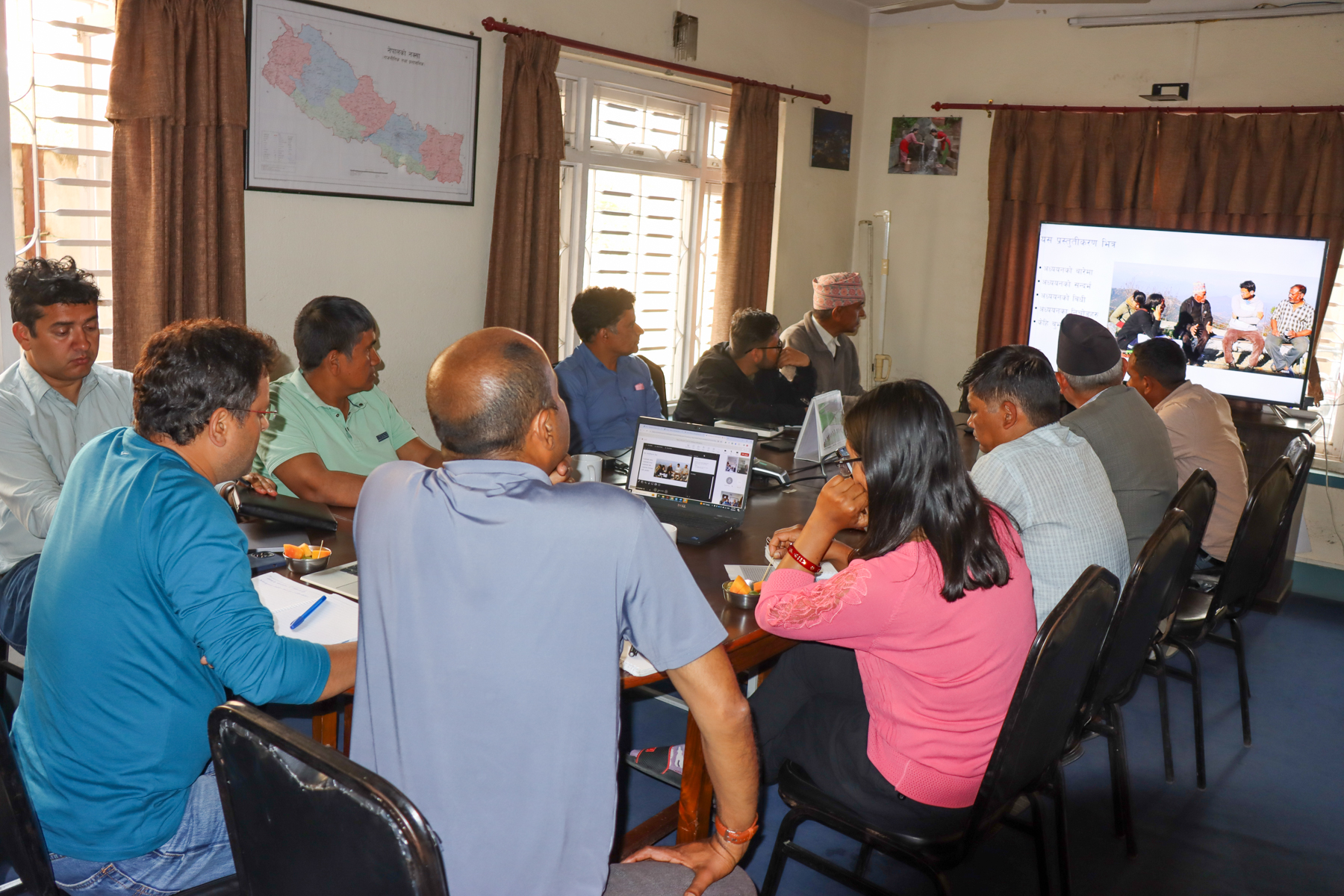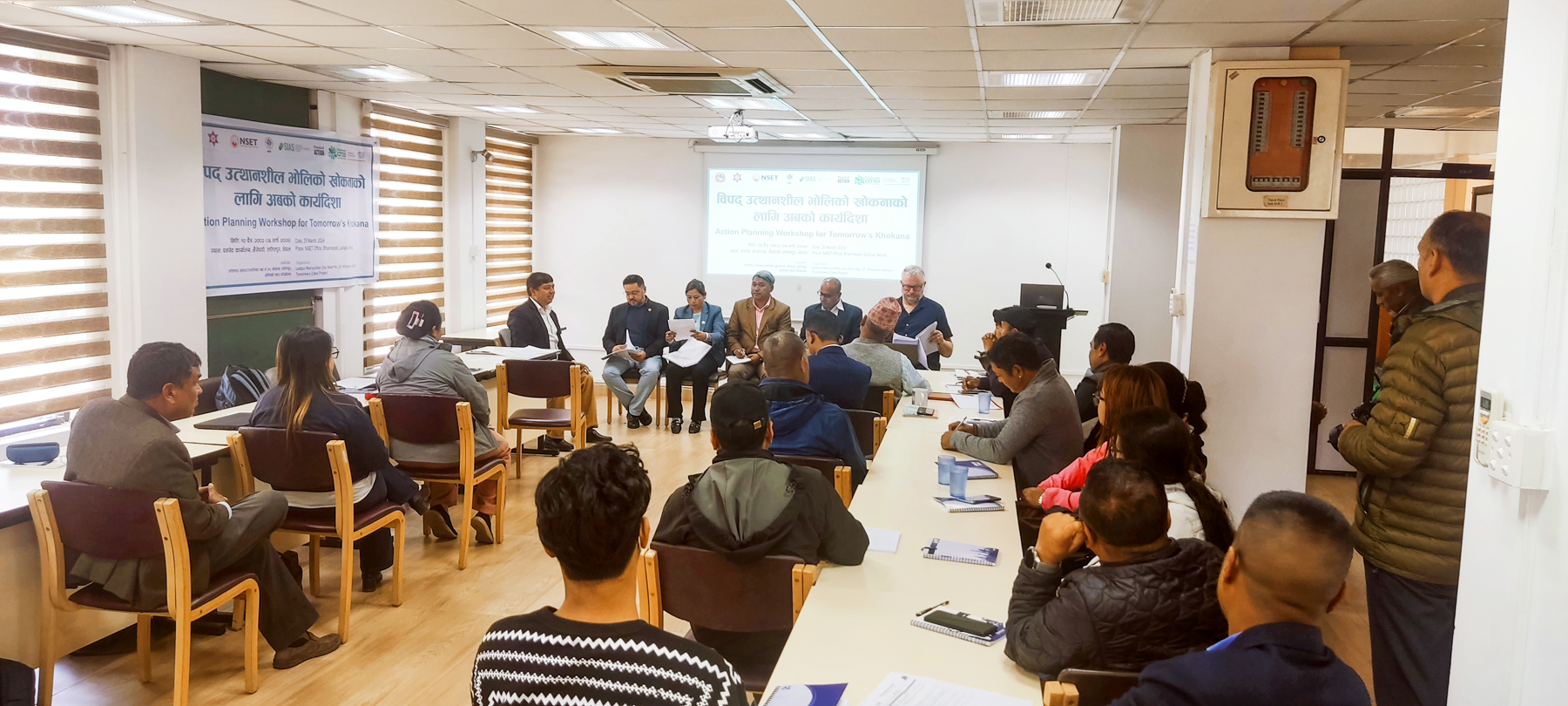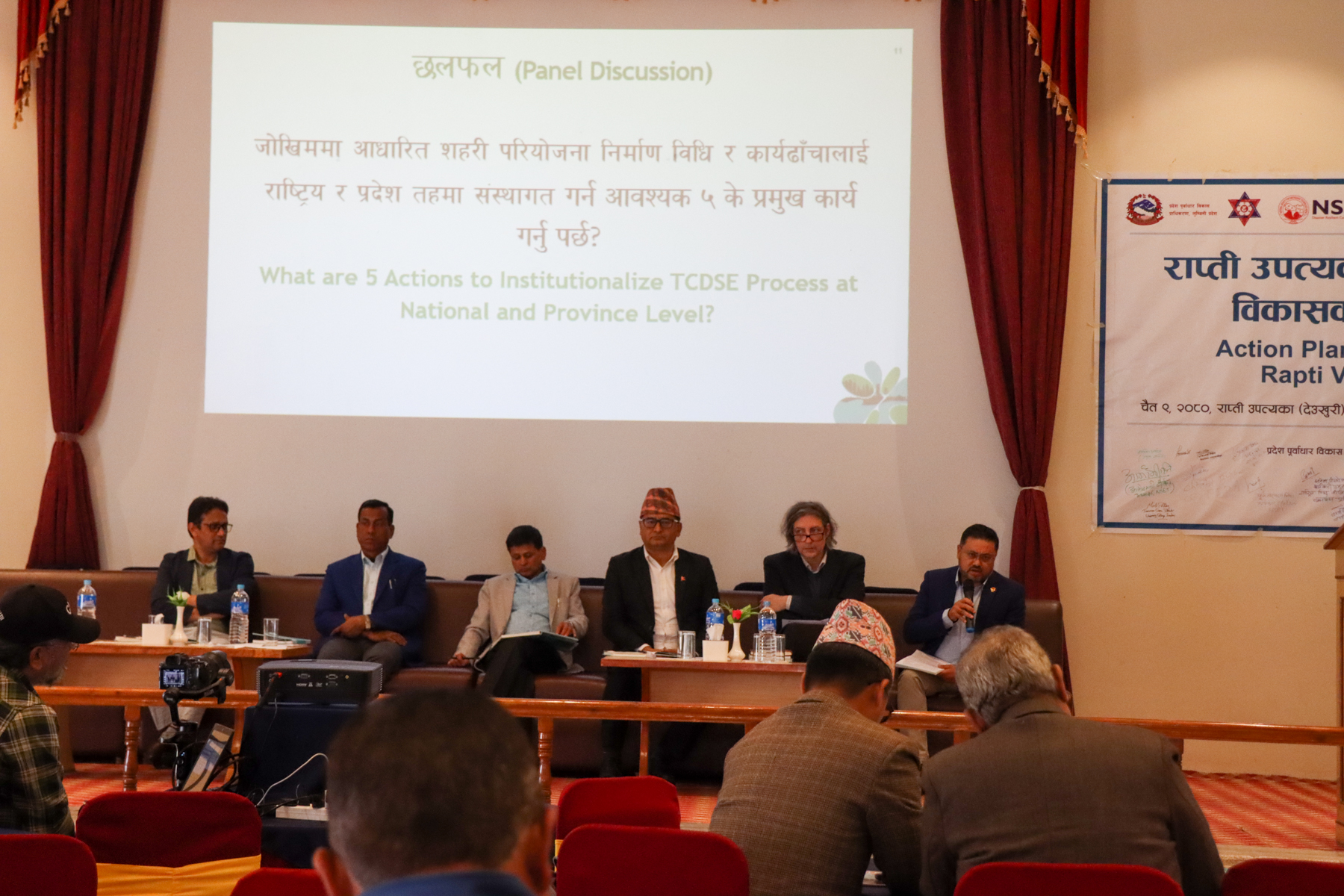The SIAS TC research team continued to embark on an exploratory field visit to Deukhuri/Rapti Valley in Dang from September 13 to September 22, 2023. This field visit served several purposes, including the deployment of the validation workshop (WP2) as part of the second stage of Tomorrow’s Cities Decision Support Environment (TCDSE), which is a continuation of the Future Visioning workshop (WP1) held on June 14-15, 2023. Additionally, the trip involved conducting fieldwork and initial research findings sharing workshop. The validation workshop, deployed on September 14-15, 2023, intended to validate the visioning scenarios that were developed by the disaggregated groups during the WP1 workshop. The subsequent fieldwork was intended to gather the individual and collective perspectives of local residents on challenges and opportunities in the rapidly urbanizing capital city, particularly following its designation as the capital of Lumbini province.
During this fieldwork, we had the opportunity to connect with new and insightful individuals who were not included in the previous TCDSE activities in Rapti. Furthermore, we organized meetings with the members of local forest and drinking water user groups, tole improvement committee among others, in Gadhawa Rural Municipality (GRM), Rapti Rural Municipality (RRM), and Sitganga Municipality (SM). Throughout the fieldwork, both social mobilizers were very helpful and supportive.
A week-long field trip concluded with a sharing workshop on “Urbanization: Opportunities and Challenges” on 21st September 2023 where 17 representatives from diverse social, educational, and professional and political backgrounds actively participated. The workshop was divided into two parts: sharing and reflection. Dr. Dilli P. Poudel, in addition to introducing the objectives of TCDSE and its implementation and importance in Rapti, shared the initial findings from the earlier fieldwork, Participatory Hazard Mapping (PHM), and the Future Visioning workshop (WP1) with the participants. Subsequently, Dr. Maniram Banjade informed the participants about the importance of visioning in city planning, explaining the planning histories of New York, USA, and Australia. Dr. Banjande’s presentation encouraged participants on the possibilities of designing environmentally friendly and sustainable cities without compromising the natural resources of the valley, which further convinced participants about the importance of visioning in city planning.
Following the presentation session, the workshop participants were divided into two groups and provided with flip charts and markers to identify and list the challenges and opportunities of urbanization across various segments of society, such as the Tharus, the poor, the informal and freed-bonded laborers, and migrants. Some of the challenges that might be brought about by urbanization and migration in the future, as highlighted by the participants, included land fragmentation, increase in pollution, depletion of natural resources like forests, risks of hazards and disasters due to increased constructions, fear of losing Tharu identity, etc. Conversely, they also mentioned opportunities like an increase in employment opportunities, tourism development that will help in conserving local culture and tradition, an increase in the use of new technology, educational opportunities for their children, and business expansion. They also emphasized considering detailed plans and policies, inclusive involvement of both upstream and downstream communities, adoption of sustainable development practices, and the implementation of waste management plans before expanding settlement areas, etc.
The event was widely documented and broadcast through various local media outlets.
भाेलीकाे राजधानी शहरले अवसर के दिन्छ, चुनाैति के लिएर आउछ ?
लुम्बिनी प्रदेशको राजधानीलाई कस्तो शहर बनाउने बिषयमा छलफल शुरु – Deukhuri Today




